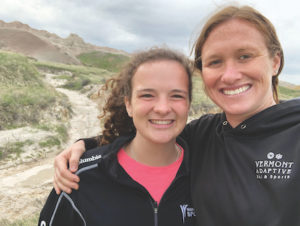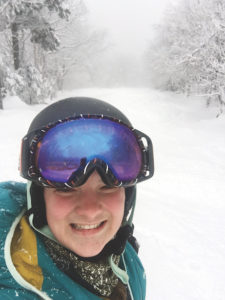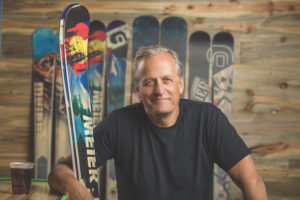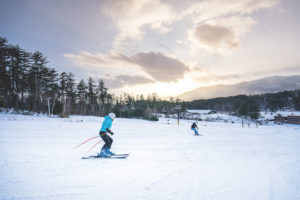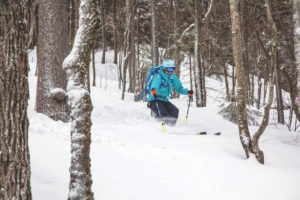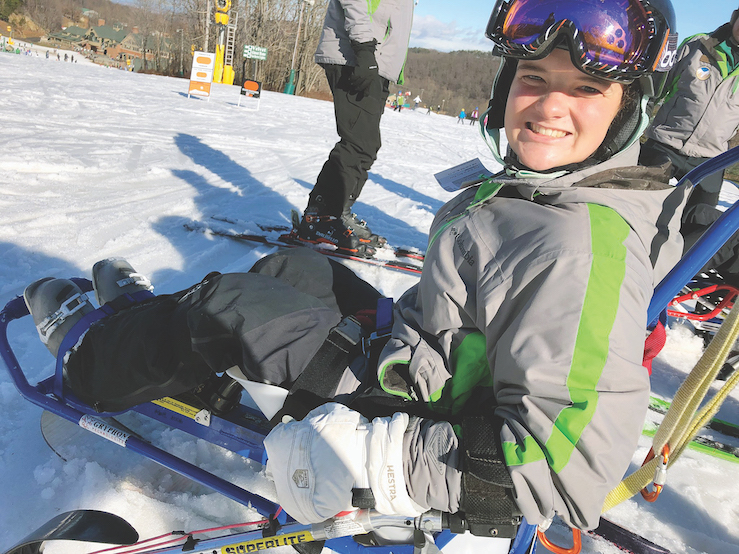
When she arrived at the University of Vermont from her hometown just outside of Amish country in Pennsylvania, Cayla Hammaker was looking for a change. Her time spent both in and out of the classroom in Burlington, Vt., provided exactly that — and then some.
Hammaker, training and education program specialist with Disabled Sports USA, contemplated a career in physical therapy when she first arrived on the UVM campus in 2013. But a summer job at an adaptive wilderness camp followed up by an internship on the slopes with Vermont Adaptive ignited her passion and altered her path, directly leading to her position today.
Hammaker is PSIA Adaptive Alpine Level 1-certified, trained to assist athletes classified with vision-related diagnoses and intellectual/cognitive-related diagnoses as they train and compete in three-track, four-track, mono-ski and bi-ski. She recently returned from helping to coordinate Disabled Sports USA’s Hartford Ski Spectacular at the Beaver Run Resort in Breckenridge, Colo., one of the nation’s largest winter sports festivals for people with disabilities. The festival welcomes more than 800 athletes who participate in learn-to-ski and snowboard lessons, a weeklong race camp, nordic skiing and free clinics in nordic, biathlon, curling and sled hockey.
In March, she is scheduled to present a talk on the work of Disabled Sports USA at the Nonprofit Technology Conference at Baltimore Convention Center. Always happy to talk about the work she loves, Hammaker took some time to share her passion with New England Ski Journal:
